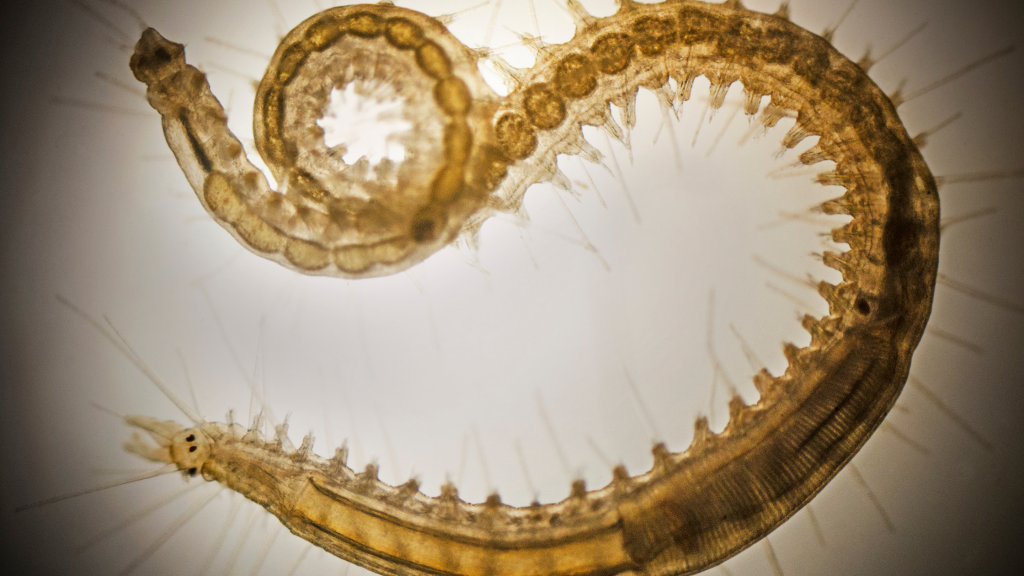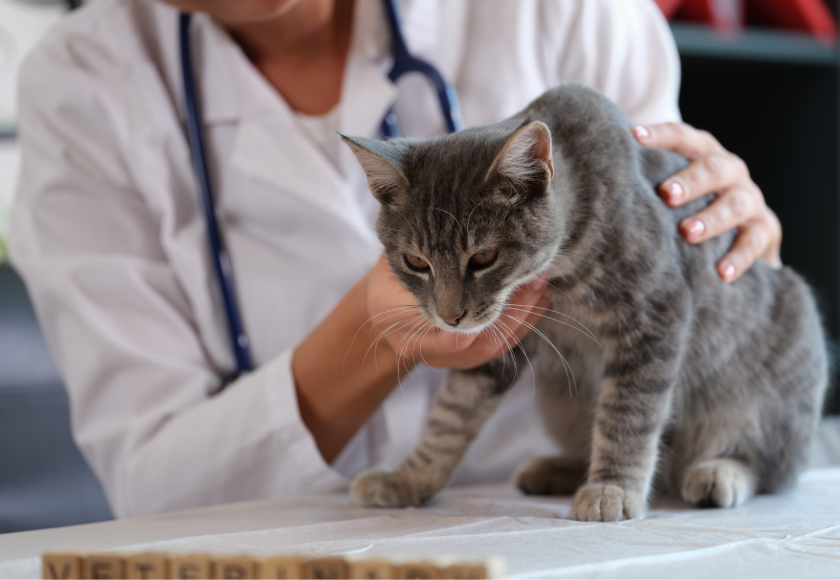Cat worms (parasitic worms) are one of the most common health problems among cats.
Intestinal worms are most commonly found in cats, but parasites can also settle in other organs, such as the lungs and heart, causing serious health problems.
Therefore, it is very important to be aware of the possible symptoms caused by cat worms, preventive measures, and deworming methods.
Table of contents
The most common worms found in cats in veterinary medicine
There are various types of cat worms, but the most common are roundworms and tapeworms (flatworms), which are most often found in the cat’s intestines. Lungworms and heartworms are less common but no less dangerous.
- Roundworms (Toxocara cati, Toxascaris leonina). Roundworms are one of the most common types of intestinal parasites found in cats. They cause various digestive disorders, poor appetite, and weight loss. Cats often become infected through contaminated food or contact with soil contaminated with the feces of other infected cats.
- Tapeworms – flatworms (Dipylidium caninum, Taenia spp.). This type of cat worm usually enters the body through fleas, which can infect wild cats or cats that go outdoors. Cats infected with tapeworms may experience abdominal discomfort, weight loss, fatigue, and tiny white segments of the worms may be visible in their feces.
- Lungworms (Aelurostrongylus abstrusus). These cat worms settle in the cat’s lungs and can cause breathing problems. Infection with lungworms causes heavy breathing, coughing, shortness of breath, weight loss, and in severe cases can lead to serious lung disease. Lungworms are most commonly spread by infected small rodents or birds, and cats become infected by hunting them.
- Heartworms (Dirofilaria immitis): These cat worms cause a dangerous condition called dirofilariasis. Cats infected with these worms may experience shortness of breath, lethargy, coughing, weight loss, and, if the infection progresses significantly, it can be fatal. Heartworms are transmitted by mosquitoes, so this risk is higher during warmer months.

Symptoms indicating the presence of worms in cats
Worm infections can manifest themselves in various symptoms, depending on where in the body the parasites have settled. Here are some of the main symptoms that may indicate worms in cats:
- Weight loss
- Poor appetite or changes in appetite
- Bloating or abdominal discomfort
- Vomiting or diarrhea
- Segments of worms visible in stool or around the anus
- Coughing or shortness of breath (especially with lung or heart worms)
- Fatigue and apathy
It is important to pay attention to these symptoms, as a long-term untreated infection can seriously harm your cat’s health.

When should cats be neutered?
Flea control is an essential preventive measure that helps protect cats from various parasites.
Experts recommend deworming cats at least once every 3–6 months, depending on their lifestyle.
Cats that spend a lot of time outdoors are at greater risk of becoming infected with worms and should therefore be dewormed more frequently.
Kittens should be dewormed for the first time approximately 6 weeks after birth, as young animals are particularly susceptible to worm infections, which can quickly affect their health.
Prevention of cat worms is necessary 10-14 days before annual vaccination.
Ways to deworm cats: tablets and drops
Veterinary clinics offer several effective methods of deworming, depending on the preferences of the owner and the cat.
- Tablets. Tablets are one of the most commonly used methods for treating worms. They are effective and usually work on various types of worms, but administering them to some cats can be challenging. To ensure successful deworming, follow your veterinarian’s instructions for dosage based on your cat’s age and weight.
- Skin drops. This is a very convenient method of deworming, where the medication is applied directly to the cat’s skin, usually between the shoulder blades. Drops are effective and convenient to use, as cats often do not even notice the application of the medication. This method is particularly useful if your cat cannot swallow tablets or if protection against several types of parasites is required, including external parasites such as fleas.

How to ensure effective deworming?
To achieve the best results and avoid reinfection, it is recommended to:
- Keep an eye on your cat’s health
- Clean and disinfect your cat’s living space
- Make sure to get regular checkups, especially if your cat hangs out with other animals or spends a lot of time outside
A visit to the veterinary clinic – a necessary step
Cat worms are not a pleasant thing. If you notice any of the above symptoms or need advice on regular prevention, we recommend visiting the Begemotas Veterinary Clinic in Vilnius.
Here, qualified specialists will provide professional assistance and select the most appropriate deworming method, taking into account the individual needs of your cat.
Preventive measures and timely deworming help maintain your cat’s health and protect against serious complications, so it is worth taking care of your pet regularly.





